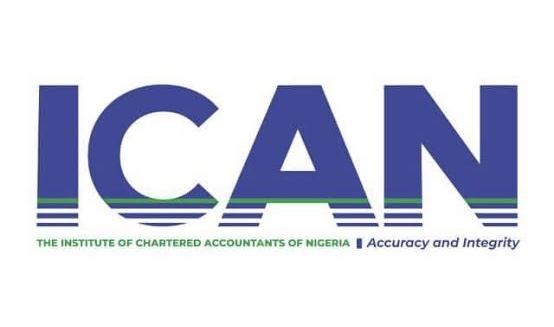Stakeholders raise concerns over ICAN Act Amendment Bill

Stakeholders in the financial sector have raised concerns over some sections of the bill seeking to amend the Institute of Chartered Accountants of Nigeria (ICAN) Act.
Some stakeholders raised concerns during the bill’s public hearing organised by the Senate Committee on Establishment and Public Services Matters on Thursday in Abuja.
The bill, sponsored by Solomon Adeola, seeks to amend the ICAN Act to address contemporary needs and trends in Nigeria’s economic environment and modernise the law to reflect changes in a professional accounting environment.
The bill would be the first significant update to the act, established 59 years ago.
Some of the stakeholders included the Chartered Institute of Taxation (CITN), the Association of National Accountants of Nigeria (ANAN), the Chartered Institute of Secretaries, the Chartered Institute of Bankers of Nigeria, the Financial Reporting Council of Nigeria, and Nigeria Institute of Management (NIM).
According to them, they are not opposed to ICAN amending its act but are against sections 15, 22, and 28 of the amendment bill. They argued that the sections were designed to take up regulatory functions of other similar professional bodies in the country.
Therefore, the stakeholders called for the removal of the sections they considered inappropriate, saying the bill was self-serving.
Samuel Adegbeluyi, CITN president, said the proposed piece of legislation would embrace other professions.
“The way they are going about the amendment is what we are against. You cannot use this amendment to annexe other professional bodies that have been certified by an act of the National Assembly,” he said.
Adedoyin Olumide, Chartered Institute of Treasury Management (CITM) registrar, said the bill’s content raised significant concerns regarding its scope and potential impact on other professional bodies.
He said the inclusion of tax practice in the bill contradicted existing judicial rulings favouring CITN. He said the bill’s scope might conflict with existing laws and professional standards.
He said the amendment could create regulatory ambiguities and undermine the professional integrity of other specialised bodies.
“By virtue of this amendment, ICAN is indirectly asking and at the same time calling on the Senate of the Federal Republic to repeal all other pieces of legislation assented to and passed as an act of the National Assembly.
“While ICAN’s efforts to modernise are commendable, the bill’s extensive scope can disrupt the professional ecosystem and lead to regulatory conflicts. We urge this distinguished Assembly to expunge from this amendment bill all the listed areas of specialisation already covered and passed into an Act of the National Assembly,” the CITM registrar explained.
He said the ICAN Act Amendment Bill should focus on enhancing ICAN’s core competencies in accounting, auditing, and financial reporting, and collaborate with other bodies.
“ICAN should work with other professional bodies to delineate clear boundaries and avoid overlapping jurisdictions,” he said.
However, ICAN president Davidson Alaribe said the amendment was to model the ICAN Act and meet global best practices and standards in accounting.
He urged stakeholders to support the amendments sought in the bill.
Earlier, the committee chairman, Cyril Fasuyi, said the public hearing was organised to receive stakeholders’ input on the bill. He assured the stakeholders that their views would be analysed and presented for consideration.
Senate President Godswill Akpabio declared the public hearing open and said ICAN plays an important role in the nation’s economic development by ensuring its members’ professionalism and ethical conduct.
He said the proposed amendment would further promote ethical standards and excellence in accounting.
Mr Akpabio said that stakeholders’ contributions would have a lasting impact on future generations. Hence, they should uphold the highest ethical standards in their contributions and strive for integrity and accountability.
(NAN)
We have recently deactivated our website's comment provider in favour of other channels of distribution and commentary. We encourage you to join the conversation on our stories via our Facebook, Twitter and other social media pages.
More from Peoples Gazette

Politics
Katsina youths pledge to deliver over 2 million votes to Atiku
“Katsina State is Atiku’s political base because it is his second home.”

NationWide
Reps probe appointments of NASRDA, RMRDC DGs by science, technology minister
He said the Minister of Innovation, Science and Technology, Uche Nnanji recently appointed the NASRDA and RMRDC DGs.

Sport
Lagos sports commission announces new coaches, bonus scheme
Fatodu emphasised the initiative’s importance during a press briefing at the Lagos State Sports Commission Complex.

Faith
Tinubu to observe Eid-el-Kabir in Lagos
The statement said Mr Tinubu would observe Eid-el-Kabir in Lagos, where he would also spend the Sallah holidays.

Africa
France backs ECOWAS’ decision on Mali, Niger, Burkina Faso
ECOWAS slammed sanctions on three Sahelian countries in 2023 following the military takeover of power in their countries.

World
Israeli polls show Netanyahu’s party narrowing gap behind Gantz
The polls for the left-wing Ma’ariv daily and the right-wing Israel Hayom newspaper showed Likud winning 21 seats behind the National Unity Party on 24.

Economy
Nigeria, other African countries lose $15 billion annually to climate change: AfDB
Due to climate change, AfDB says Africa loses between $7 billion and $15 billion annually.







